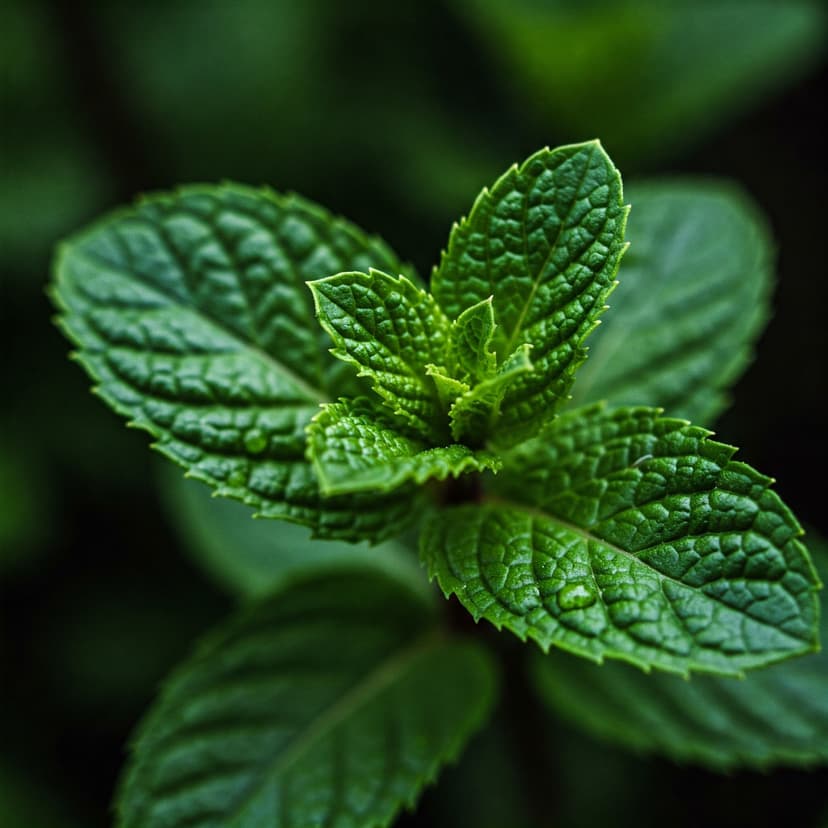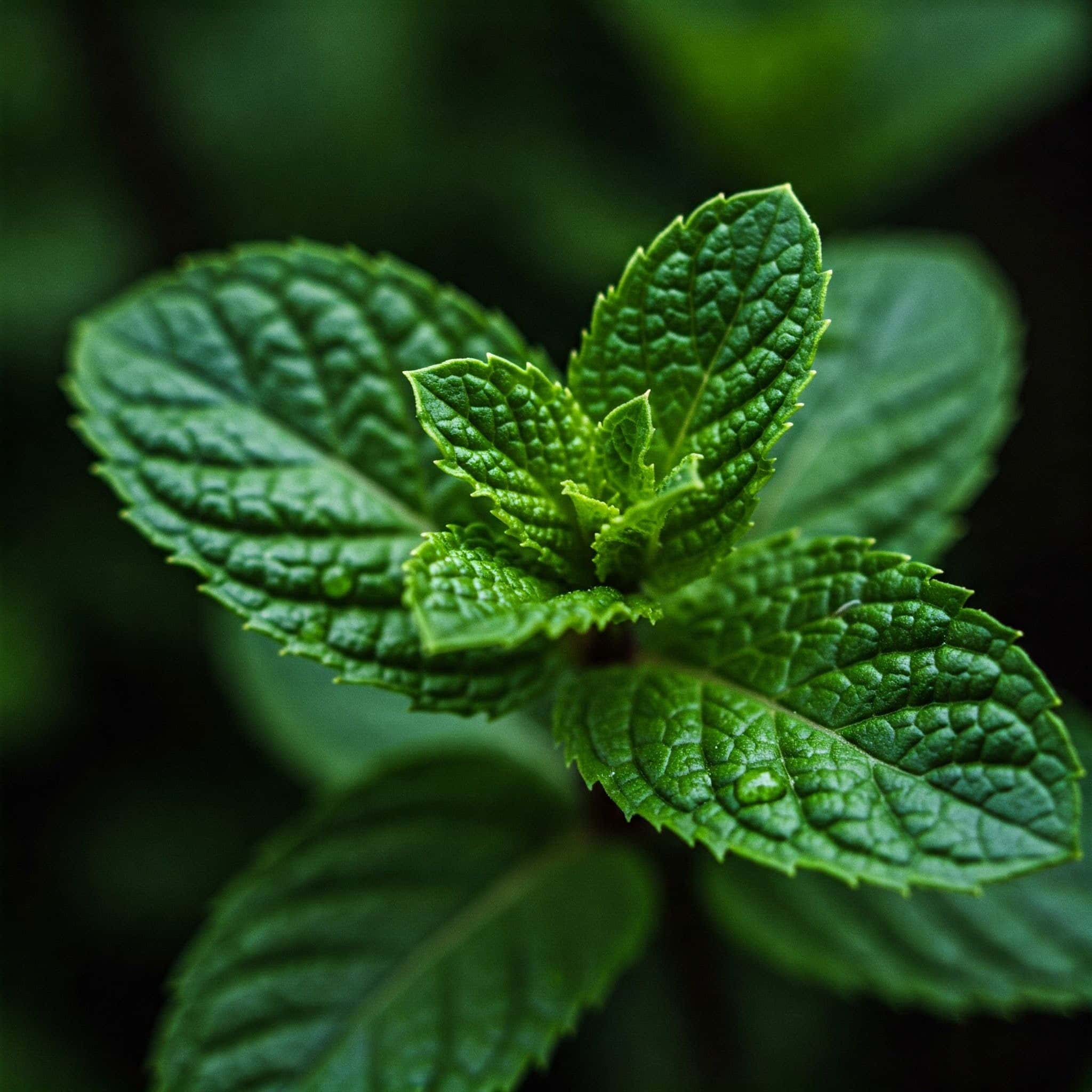


Common Name
Peppermint
Family
Lamiaceae
Parts Used
Leaves
Native To
Europe to Central Asia
Historical and Traditional Uses:
Ancient Medicine: Used in Ancient Egypt, Greece, and Rome for digestive issues and as a natural remedy for headaches and colds. Aromatherapy: Valued for its invigorating and cooling aroma to improve focus and reduce fatigue. Traditional Remedies: Used to relieve gastrointestinal discomfort, freshen breath, and soothe muscle pain.
Chemical Composition:
- Menthol: Primary bioactive compound with cooling and soothing effects.
- Menthone: Contributes to peppermint’s flavor and therapeutic properties.
- Flavonoids: Apigenin, luteolin, and hesperidin (antioxidant properties).
- Tannins: Provide astringent properties.
- Volatile Oils: Eucalyptol, limonene, and beta-pinene.
Pharmacological Properties:
- Antispasmodic: Relaxes smooth muscles, particularly in the gastrointestinal tract.
- Analgesic: Provides a cooling and numbing effect, reducing pain perception.
- Antimicrobial: Effective against bacteria, fungi, and viruses.
- Anti-inflammatory: Reduces inflammation in tissues.
- Carminative: Promotes the expulsion of gas, relieving bloating.
- Aromatherapeutic: Enhances mental clarity and reduces stress.
Evidence-Based Uses and Benefits:
- Improves Digestive Health:
- Effect: Relieves symptoms of irritable bowel syndrome (IBS), bloating, and gas.
- Key Study: Enteric-coated peppermint oil capsules reduce IBS symptoms.
- Relieves Headaches:
- Use: Applied topically to reduce tension headaches and migraines.
- Evidence: Peppermint oil significantly reduces headache intensity.
- Soothes Respiratory Symptoms:
- Effect: Relieves nasal congestion and promotes easier breathing.
- Mechanism: Menthol's cooling effect soothes irritated mucous membranes.
- Alleviates Muscle Pain and Soreness:
- Use: Applied topically to relieve muscle aches and joint pain.
- Enhances Focus and Reduces Fatigue:
- Effect: Aromatherapy with peppermint improves alertness and cognitive function.
- Supports Oral Health:
- Use: Fights bad breath and reduces oral bacteria.
Counter Indications:
- Gallbladder Issues: Avoid in individuals with gallstones or bile duct obstruction.
- GERD (Acid Reflux): Peppermint may worsen symptoms by relaxing the lower esophageal sphincter.
- Pregnancy and Breastfeeding: Use cautiously, especially in essential oil form.
- Children: Avoid concentrated essential oil in young children due to the risk of respiratory distress.
Side Effects:
- Mild heartburn or nausea in sensitive individuals.
- Allergic reactions (rare) such as rash or itching.
- Skin irritation if essential oil is applied undiluted.
Drug Interactions:
- Antacids: May reduce the efficacy of enteric-coated peppermint oil capsules.
- Cyclosporine: May increase absorption of this immunosuppressive drug.
- Herbs and Adaptogens: Works synergistically with chamomile for digestive health and ashwagandha for stress relief.
Research and White Papers with Links
- Reducing colonic spasm: (http://www.ncbi.nlm.nih.gov/pubmed/11174287)
- Relieving postoperative nausea: (http://www.ncbi.nlm.nih.gov/pubmed/11148527)
- Relieve spasm during barium enema: (http://www.ncbi.nlm.nih.gov/pubmed/12665756)
- Gastric emptying: (http://www.ncbi.nlm.nih.gov/pubmed/7954745)
- Gastric sensorimotor function and nutrient tolerance in health:(http://www.ncbi.nlm.nih.gov/pubmed/17420159)
Conclusion
Peppermint is a versatile herb with a long history of use in traditional and modern medicine. It's ability to alleviate digestive discomfort, headaches, and muscle pain, combined with its antimicrobial and aromatherapeutic properties, makes it a valuable natural remedy. While generally safe, it should be used with caution in individuals with certain medical conditions or sensitivities. Peppermint is an essential addition to herbal health regimens, offering powerful and scientifically backed benefits for physical and mental well-being.



